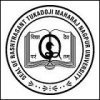Junior Diploma in Telugu - Course, Fees, Eligibility, Top Colleges, Top Careers
Course Description
The Junior Diploma in Telugu is a language course designed to provide students with a comprehensive understanding of the Telugu language. The curriculum of the Junior Diploma in Telugu course covers various aspects of the language. Students learn Telugu grammar, vocabulary, sentence structures, and phonetics.
Speaking and listening exercises aim to improve students' pronunciation, fluency, and understanding of spoken Telugu. Through conversations, dialogues, and audio resources, students practice their spoken Telugu skills and develop the ability to communicate effectively in real-life situations.
The course also provides insights into Telugu culture, literature, and traditions. Students may explore famous Telugu literary works, folk traditions, and cultural practices, which help them gain a deeper appreciation for the language and its cultural context.
Eligibilty
- Minimum Age: Applicants must meet the minimum age requirement set by the institution or organization offering the course. This requirement may vary, but it is generally around 14 to 16 years old.
- Educational Qualification: There is typically no specific educational qualification required for the Junior Diploma in Telugu course. It is open to individuals from diverse educational backgrounds.
- Language Proficiency: While prior knowledge or proficiency in Telugu is not always mandatory, some basic understanding or familiarity with the language may be beneficial for better engagement in the course.
- Interest in Telugu Language and Culture: The course is suitable for individuals who have a genuine interest in learning the Telugu language, understanding its culture, and exploring the literature, arts, and traditions associated with it.
- Commitment and Dedication: Students are expected to be committed to attending classes regularly, actively participating in language learning activities, completing assignments, and dedicating time for self-study and practice.
- Admission Process: Some institutes may require candidates to go through a selection or admission process, which may include a written test or an interview to assess their language skills or determine their suitability for the course.
Colleges


